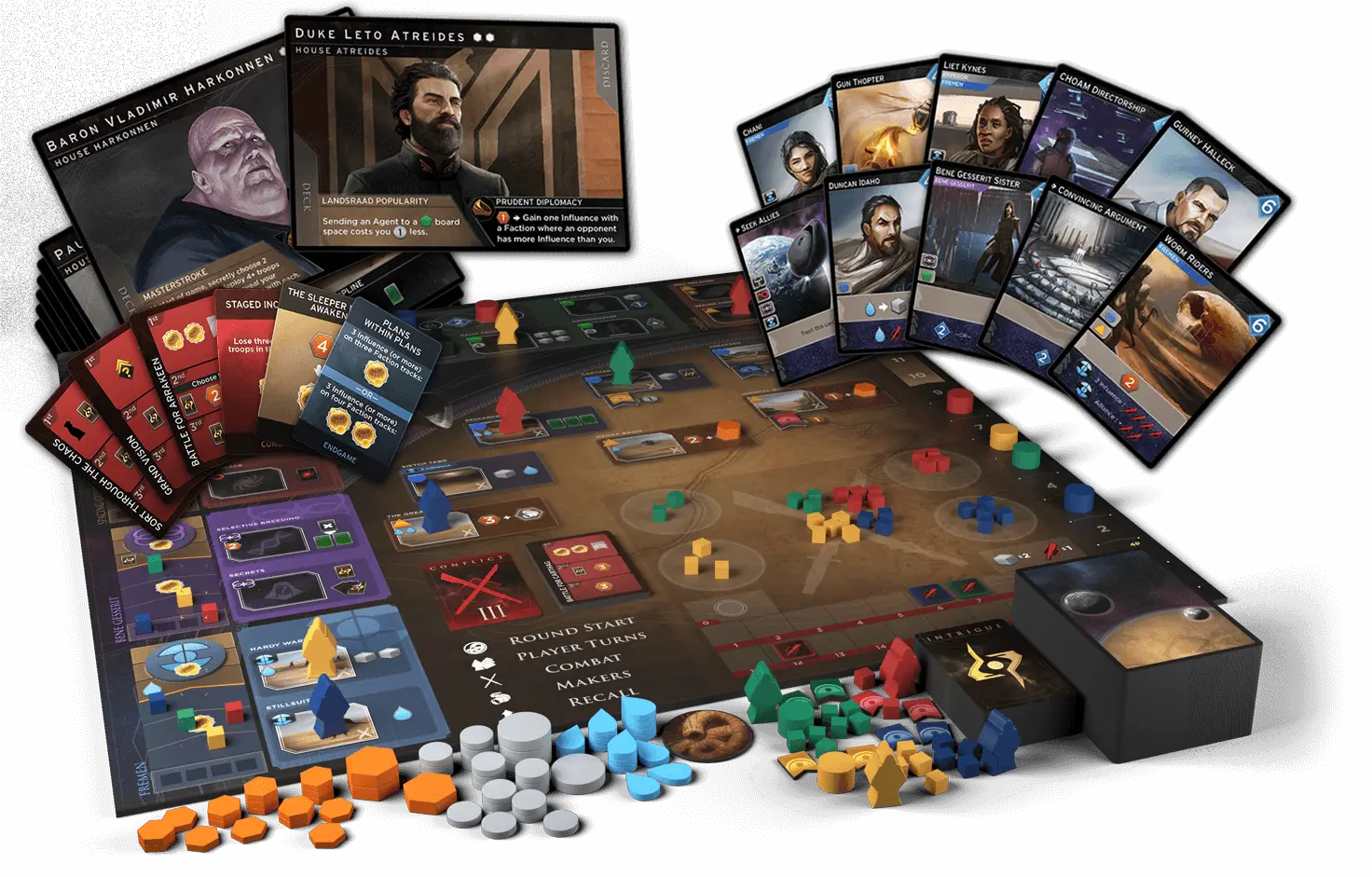Dune: Imperium is a deck-building worker placement game about political intrigue that plays best with 3 or 4 players. With great implementations on Steams, Google Play, and the Apple App Store, it is also a fun board game to play electronically.
You play a character representing one of four Great Houses (e.g., the Atreides House). You start with a deck of 10 standard cards, from which you draw five to start each round. These cards have three capabilities: they decide the type of place you can send a worker to (there are 7 different types of places), they offer a benefit when played (drawing another card, recruiting troops, etc.), or they offer something at the end of the round if you haven’t played them (typically Persuasion, used to buy additional cards, or Daggers, which add to your combat strength).
You win by amassing victory points (VPs), with the game typically wrapping up at the end of the round where a player has hit 10 VPs. Source of VPs:
- In the 4-player game, you start with 1 VP.
- Influence with each of the four factions (the Emperor, the Spacing Guild, the Bene Geserrit, and the Fremen). Achieving 2 influence with a faction gets you 1 VP. The first player to hit 4 influence with a faction gets a VP (represented by an alliance token), but this can be stolen if another player passes you on the influence track for that faction.
- Winning the end-round battle (which might offer 1 VP, 2 VPs near the end of the game, or some mix of resources).
- Hidden end-game conditions on the Intrigue cards.
Things I like:
- Like any good worker placement game, Dune: Imperium offers tense decisions on where to place your current worker, gambling about what spaces are likely to go before you can place your next worker. I like it best at 4 players, because of how tight the board becomes.
- I love the range of cards that you can buy to build out your deck, and the multiple strategies that enables.
- I’ve played the game on my iPhone, iPad and Mac (the Mac was the best experience).
Things I dislike:
- The Intrigue deck is so powerful that I found I was losing consistently when I ignored the spaces that draw Intrigue cards.
- While it’s a deck-building game, only one board space lets you remove a card from your deck (Selective Breeding)—and it’s expensive (costing 2 spice to send a worker to this space). Some cards let you remove a card, but you have to buy the card then have it come up again, so by the time it comes into play the game is well along.
Once you feel like you’ve mastered the core game, check out the Rise of Ix expansion. If you want to play with 6 players, or feel like you’ve mastered the game and its expansions, check out Dune: Imperium—Uprising, a reimplementation set after the fall of House Atreides.





You must be logged in to post a comment.